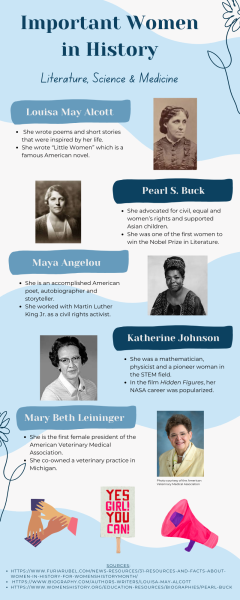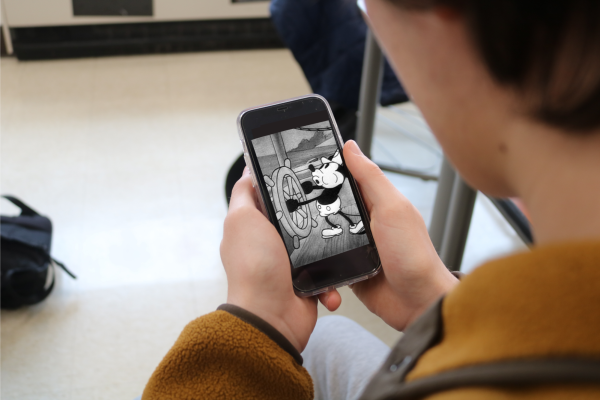Overloaded
Many forms of social media contain vast amounts of information about current events from numerous sources. Some outlets, like Twitter, have dedicated tabs to showcase trending news, which are filled with both public comments and links from reputable news sources.
When describing the goal of his life’s work, Mark Zuckerberg once said, “the thing that we are trying to do at Facebook is just help people connect and communicate more efficiently.” There’s no doubt that Facebook and the multitude of social media platforms that succeeded it have largely accomplished this goal. The Information Age has given a voice to billions of people who otherwise wouldn’t have had the opportunity to share their beliefs with people miles or even continents away. It has facilitated a mass exchange of ideas to occur within a matter of seconds instead of weeks.
Perhaps, then, the question that remains is not whether the Information Age has allowed us to connect more efficiently, but whether it has allowed us to communicate more effectively. Has the vast conglomerate of information and opinions we now have immediate access to made us a more educated citizenry, capable of forming well-developed and well-supported beliefs? Or has it left us highly uncertain and misinformed?
The evidence suggests that while the Information Age has left us with an unprecedented amount of knowledge at our fingertips, the difficulties of navigating this abundance pose a daunting challenge for our generation.
A Deluge of Information
At first glance, the increased access to information that has accompanied the Information Age appears to be an unequivocal good for society. However, access to information doesn’t always equate to the absorption of this knowledge.
Junior Nikhil Patel, who’s active on social media, highlighted this phenomenon as it pertains to social media, stating, “I think seeing a bunch of differing opinions in rapid succession [can] just be confusing…Someone might be less willing to understand something if it’s just a quick reading of a post” as opposed to a longer discussion.
This is in part because the brain has a limited capacity for the amount of data it can effectively absorb in a period of time. As explained by the International Journal of Environmental Research and Public Health, information overload can occur when an individual is exposed to such a high volume of knowledge that they are no longer able to effectively process this information and can, thus, be left feeling overwhelmed.
In the age of endless Google searches and cluttered social media feeds, information overload has become a rather common phenomenon, with 66% of American adults reporting feeling “worn out” by the amount of news they encountered in a 2019 Pew Research Center survey.
The Search for Escape Routes
Far from being a brief experience of anxiety, information overload can have significant consequences on an individual’s desire to fully process complex issues.
In fact, a study by University at Albany professor Chang Sup Park, focusing on information overload in South Korea, concluded that perceived information overload can actually lead to news avoidance because individuals lose confidence in their ability to navigate an ever-increasing body of information and thus shy away from using the mediums available to them completely.
Psychology teacher Laura Brandt expanded on how the nature of the Information Age has facilitated this news avoidance. She explained that if an individual today reads a news story about last month’s tragic shooting in Atlanta, “That’s uncomfortable. So if I don’t want to…acknowledge it’s a hate crime, or if I’m Asian American and that is just so overwhelming for me, I can just choose not to think about it, and go to the next story, and go to the next story [after that].”
She compared these modern tendencies to reactions following devastating events that occurred before the Information Age, asserting that individuals had “to figure out a way to process” these past events because they dominated press coverage, and individuals didn’t have the option of distracting themselves by clicking onto another online story.
English teacher Matt Tooley tied information overload to the development of poorly supported beliefs, stating “when you’re constantly bombarded with [information], there’s more chance that you’re going to question what you have already kind of established as truth, and there’s a degree to which that’s good…but when everything seems to be up in the air and questioned, then I think it also makes it [easier] to believe whatever you want to believe just to feel secure.”
Ironically, having access to more information than ever before might lead an increasingly large segment of society to adopt unfounded beliefs or avoid processing the world around them altogether.
Masked Lies
In addition to sheer information overload, students must also contend with the way the internet and social media have inadvertently encouraged the spread of misinformation and the development of echo chambers.
According to Business Insider, 59% of Generation Z list social media as a “top news source,” yet a report from Vox found that social media engagement with dubious news sources rose from 8% to 17% from 2019 to 2020.
Mr. Tooley elaborated on the pervasive nature of misinformation today, citing “the experience of seeing eight, nine years ago, how poorly my students could navigate the landscape of the media [and] seeing these…rogue conspiracy theories gaining traction” as the inspiration for introducing media literacy units into his classes.
Even if one manages to avoid this surge of false information, that doesn’t guarantee they are protected from more subtle biases that might corrupt their viewpoint as well.
Commenting on the greatest challenges created by the Information Age, Patel highlighted the dangers of online echo chambers because “there’s so much information available, you can find sources of information that will just completely agree with you. And they’ll provide reasoning and facts…that may or not be tailored to fit a certain narrative.”
Course Correction
While information overload and misinformation may pose serious threats to our society, the benefits of responsibly interacting with media cannot be ignored.
Referring to the various worldwide issues addressed by her global capstone class in their social activism projects, Mrs. Brandt described how the “internet has sort of opened the door to [involvement in social activism]” for students by connecting them to causes they are passionate about.
In addition, there are multiple steps both individuals and society can take in order to combat the effects of information overload and the spread of false claims.
Mr. Tooley stressed the importance of formally introducing media literacy units into the curriculum because they can “empower [students] to feel like [they] can go out and get information that [they] feel is valid, credible information.”
He reiterated the importance of maintaining a “healthy skepticism” of the information one may encounter while still trusting the experts in a particular field.
In regards to effective researching, Mrs. Brandt suggested that students “set up a system in which you’ve got all highly credible sources. Take one that’s more sort of liberal, one that’s more mainstream, and one that’s more conservative. That will give you a robust range…and then you won’t go down the wormhole [with] all these other sources.”
Determining the net impact of the Information Age on our ability to develop fact-based beliefs might be impossible, but better preparing students to navigate an ever growing body of information is a step that our society can take to create a more educated citizenry.





![Mr. Scott Brzezinski poses for a photo while working at ShurWay Moving in Libertyville where his cousin Mr. Eric Brzezinski also works. He appreciates that LHS prepares students for their future by providing a variety of opportunities. “[There are] a lot of different resources that LHS has between colleges and counselors,” he said. (Photo courtesy of Mr. Scott Brzezinski)](https://www.lhsdoi.com/wp-content/uploads/2025/02/Mr.-Scott-Brzezinski-Photo-2-600x600.jpg)

